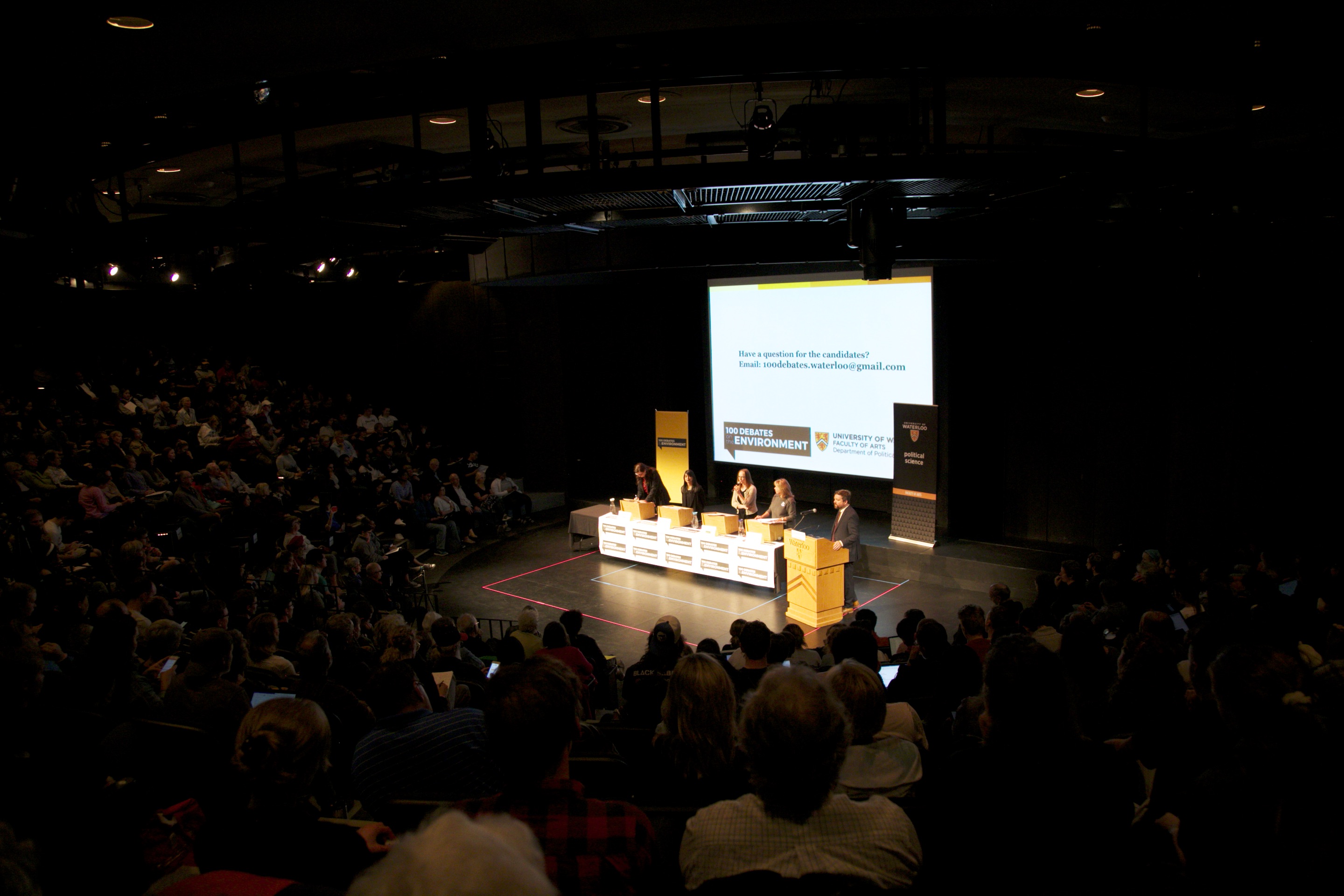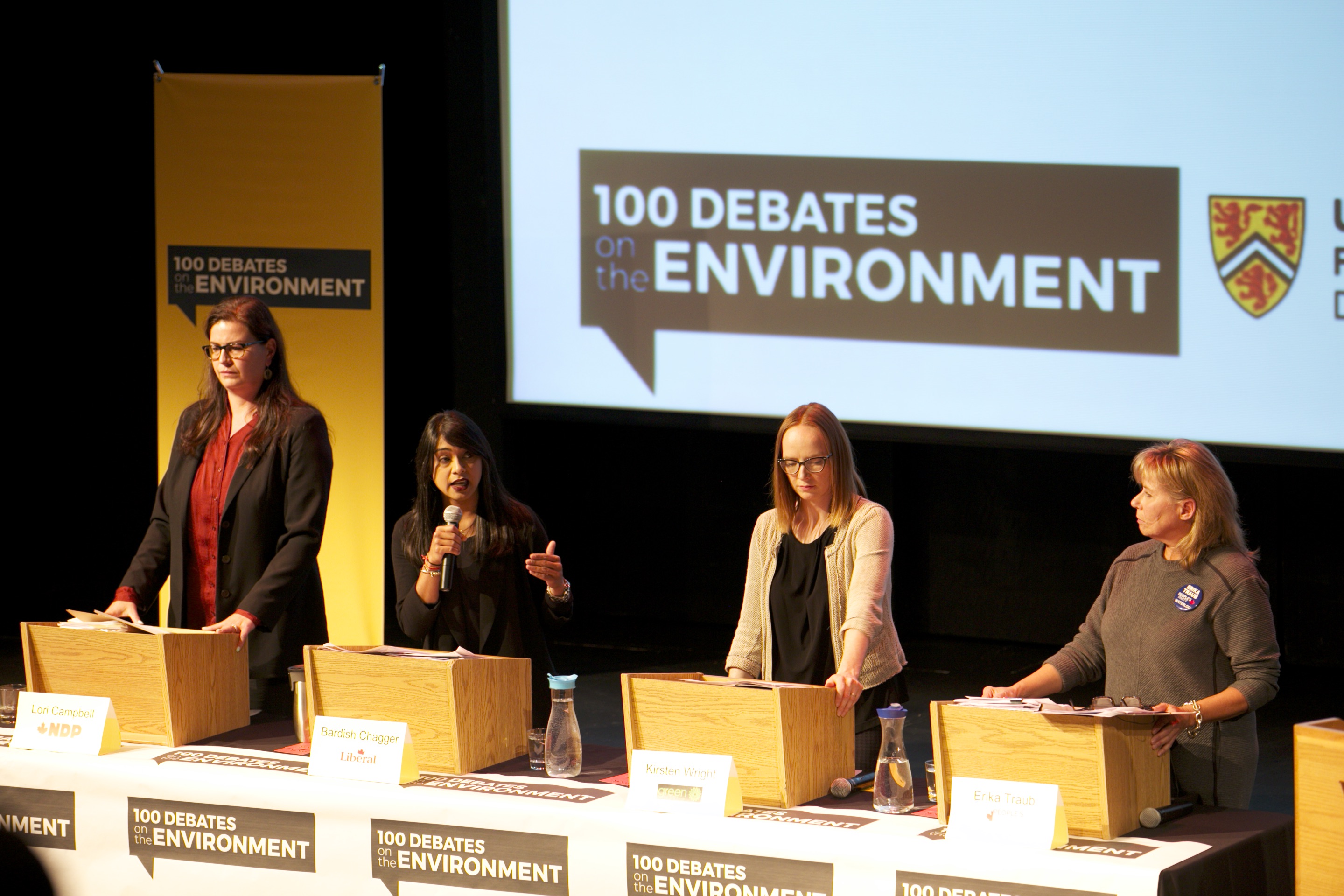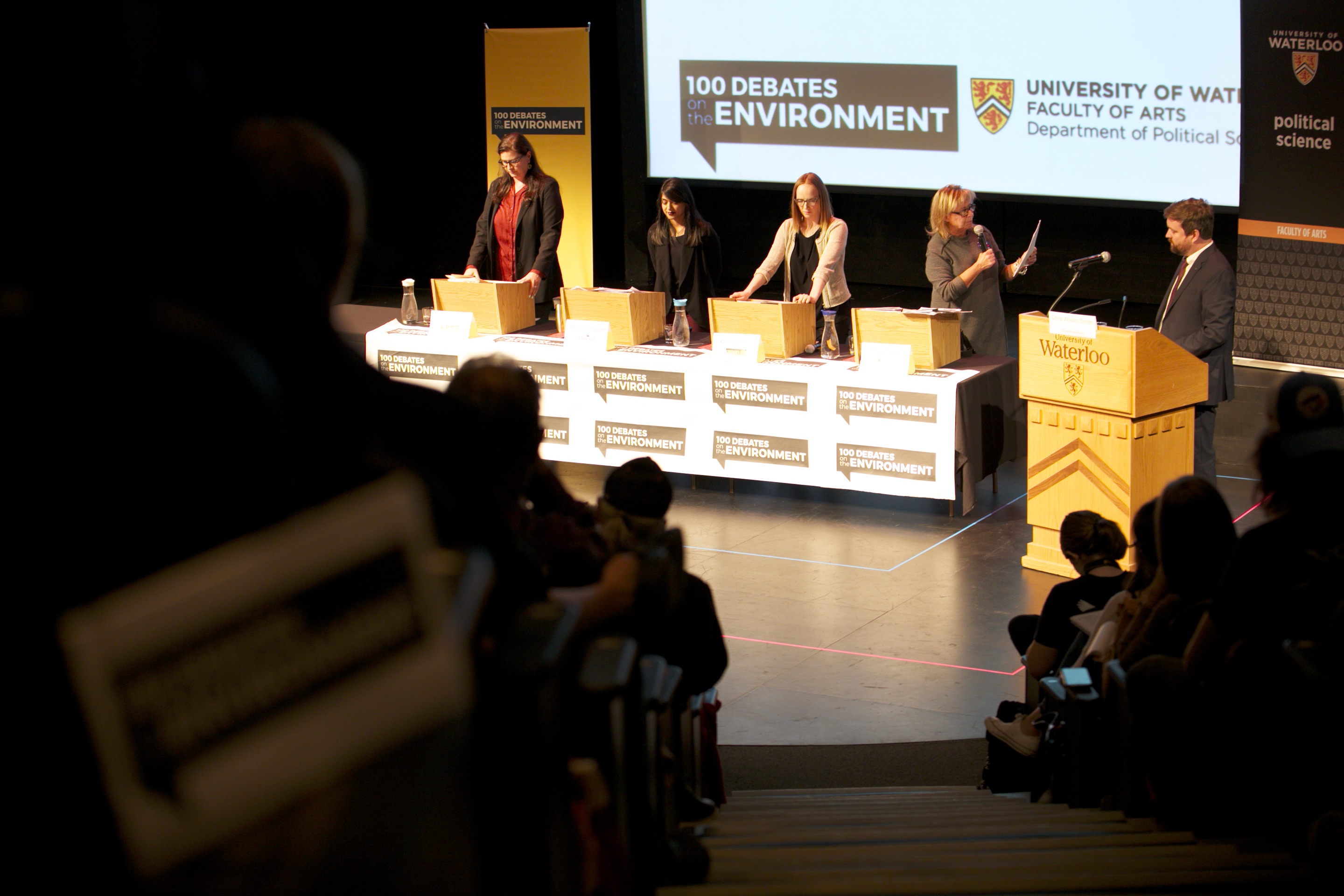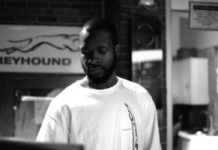
Sponsored by the Department of Political Science, UW, 100 Debates on the Environment was held on Wednesday, Oct. 9, 2019 at the Modern Languages building.
The debate began at 7 p.m. and the theatre quickly filled up ahead of the free event.
It was also live streamed on Facebook and was shown at AL 116 due to the main venue being at capacity.
The moderator of the debate was Chris Wilson Smith, manager, Media Relations, UW.
Lori Campbell (NDP), Bardish Chagger (Liberal Party), Erika Traub (PPC), and Kirsten Wright (Green Party) participated in the debate.
An invitation was extended to Conservative Party candidate, Jerry Zhang, who declined closer to the date due to a change in Zhang’s schedule, according to 100 Debates on the Environment.
Six questions, vetted by the politicians, were provided to them beforehand and the order for answering was randomly determined.

Participants were given two minutes for introduction at the beginning and concluding remarks at the end of the debate, as well as to answer each question.
Chagger and Campbell both used their introduction time to explain what their respective parties have done or will be doing in the future to combat climate change and save the environment.
“Today, in Canada, if you pollute, you pay,” Chagger said.
But Campbell said it wasn’t enough.
“We have a plan to address the climate crisis without leaving anyone behind,” Campbell said.
“I am proud to be the only candidate in Waterloo to be endorsed by Our Time.”
The first question centred around climate change and the key elements each candidate would like to incorporate in their plan to ensure Canada meet its international obligations reduce its greenhouse gases (GHG) emission.
Campbell argued how she thought the Trudeau government was not helping in lowering Canada’s contribution to GHG pollution.
“He gives exemptions to the biggest polluters,” Campbell said.

The PPC’s Traub emphasized on what she called future of fossil fuels, Wright argument was focused on the importance of and the need to fight climate change.
“I realized it might not be the same world when I am sitting with my grandkids,” Wright said.
Traub argued that Canada’s high emissions are justified by the cold weather and how Canada is a major food producer. None of her party’s plans for the future were mentioned.
Wright was the first candidate to use a wild card at the end of the first round.
Water pollution and flooding were covered in the second question, while the rest discussed issues like wilderness conservation, pollution and toxic substances, a decarbonized economy, and indigenous rights.
100 Debates on the Environment is a national initiative that organizes non-partisan all-candidate debates across Canada.































